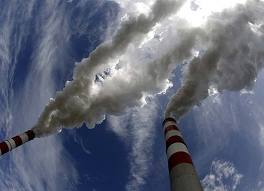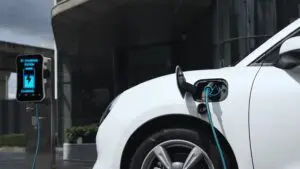The European Parliament has approved plans aimed at reducing the glut of carbon permits that have sunk the price of CO2 to record lows in the world’s biggest emissions trading scheme.
MEPs voted in favour of “backloading” proposals at a plenary vote in Strasbourg on Wednesday, approving plans for the European Commission to temporarily postpone the auction of 900 million allowances for the bloc’s ETS.
The proposals were approved – 344 votes to 311 – as a compromise by the EU’s three largest parties, after initial stricter plans were rejected by a similar margin in April, amid fears the measure would push up the cost of energy across Europe.
The news saw carbon prices – down by around 10 per cent before the vote – rebound to €4.7/t, up 10 per cent on Tuesday’s close. But prices still have a long way to go to regain the 48 per cent they have lost after falling from a 12-month high of €9/t – or indeed the 70 per cent they have lost over the past four years.
According to The Guardian, analysts say the backloading measures could raise carbon prices to €15, but believe prices above €20 are needed to give utilities sufficient incentive to make serious switches to lower carbon energy generation.
In Australia, the news adds yet another twist to local climate politics, as newly reinstated Prime Minister Kevin Rudd weighs his options on bringing forward the 1 July 2015 date at which the nation’s carbon tax converts to an ETS, and is thus linked to the foundering EU market.
Putting aside the significant complexities of unwinding Australia’s carbon tax early, the vote in favour of proposed EU ETS reforms could help push Rudd’s decision either way: A switch to the floating European scheme, with its comparatively much lower prices, might be good news for industry and consumers, but it also risks putting a possible $15 billion hole in the government’s revenue forecasts.
But before any EU reforms are implemented, they will need to be signed off by the Member States in the Environment Council – a move that HSBC analyst Nick Robins says probably won’t be made before September’s federal elections in Germany, making it likely that backloading will only start in 2014.
Once implemented, this temporary fix would reduce the surplus through to 2016, says Robins, “after which it starts rising again and could be larger in 2020 than current levels unless additional climate action is taken.”
But Matthias Groote, the German MEP who steered the reforms through the parliament, said yesterday that every effort would be made to avoid this scenario. “We shall not let the ETS be the victim of short-term concerns,” he said. “Structural reform of our emissions trading system will follow to ensure it remains the cornerstone of EU’s climate policy.”
Meanwhile, other proposed carbon market reforms were rejected by the parliament yesterday, including separate amendments that would have diverted additional funds to help energy intensive industries invest in efficiency measures.
Among the plan’s backers, this has fueled concerns that the compromises have watered down original plans to the point where they could prove ineffective at driving up the carbon price. Among its detractors, namely Europe’s energy intensive industries, it has intensified the inevitably negative response.
“The parliament not only took the wrong decision on backloading, but also rejected an amendment which would have provided much needed [financial] support for industries that face significant barriers to reduce emissions.” said Ian Rodgers, director of UK Steel, quoted in The Guardian.
While Rhian Kelly, CBI Director for business environment, said: “British business is committed to the ETS as the cornerstone of EU energy and climate change policies [but] the commission must also improve support for those businesses most at risk from any future reforms.”
But to Ed Davey, the UK’s energy and climate change secretary, the vote was an important step forward. “We need a stable carbon market so we get a more certainty for investors so emissions reductions can be achieved at the lowest cost possible.”










